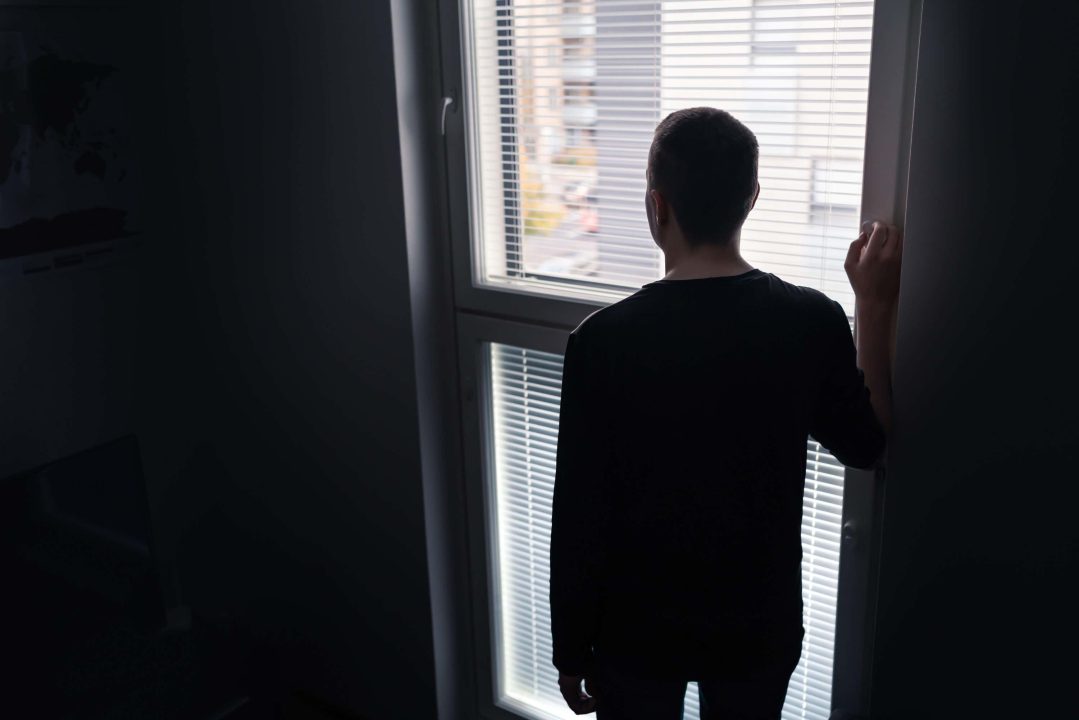A disabled man was “trapped in his bedroom for five years” due to care failings, a report has revealed.
The man, named in the report as Mr E and aged in his 50s, was diagnosed with schizophrenia in 2003 and also has diabetes, but is now in a care home for dementia patients after his health deteriorated.
Mr E once enjoyed trawling record shops and visiting cafes and libraries, but is now blind and bedbound after receiving no treatment for his mental or physical health between the summer of 2017 and 2020, a report by the Mental Welfare Commission for Scotland found.
He needs 24-hour care and says he has “no quality of life”.
A hospital in England raised “safeguarding concerns” in 2015 about Mr E’s brother who was his “main carer”, the commission found, but it took seven years before the local authority obtained guardianship.
Concerns were raised about the “controlling” and “confrontational” sibling as long ago as 2007, and a report said in 2015 that concerns had been raised his brother was “covertly medicating” Mr E.
The same brother of Mr E asked for a probe into how he “ended up a prisoner in his bedroom for five years”, the report said.
The commission said there were failings from “every agency involved” until Mr E was admitted to hospital in 2020, by which time his conditions were likely to be treatment resistant.
The report said he previously responded well to mental health treatment but, after a prescription in March 2010, went without medication for nearly five years.
He made requests twice for a prescription in 2013 but did not make a GP appointment which was required, and in 2015 he was given urgent treatment in an English hospital for diabetes, with it flagged as being untreated for “many years”.
The report said in 2016 it was found that Mr E was not taking his psychiatric medication and his brother had stopped district nurses from seeing him.
The commission said concerns were raised in August 2016 when Mr E’s brother began collecting his benefits and, in May 2017, the sibling refused a request for a home visit from social workers.
On an unannounced visit the following month, Mr E was heard “shouting for assistance” as his brother refused entry, which happened again a week later.
Police accompanied a GP on June 30, where Mr E was found to be “dishevelled (and) dirty” and his brother threatened the doctor.
Due to the start of the pandemic in March 2020, the GP refused a home visit, and police would not assist social workers, who did attend and spotted sores on Mr E’s knees from “crawling on the floor”.
Mr E was sectioned in June 2020 on the recommendation of a community mental health team which said the situation was “dire”, and he was admitted to hospital in August.
In July 2021, an interim local authority welfare guardianship order was granted, but the commission reported Mr E’s medical condition was likely to have become “treatment resistant” in 2020, and he needs 24-hour care.
The report added: “Mr E was not attending appointments with the GP, nor was he receiving blood or physical health monitoring that would have been expected, both for diabetes and mental health.”
The commission called for a review of his care, accommodation and finances and is supporting Mr E until that happens.
The report said: “Mr E’s past history suggests that his mental illness responded well to oral medication, when he was reliably taking this.
“However, by the time of his admission in August 2020, it was suggested that his illness had become at least partially treatment resistant as a result of long gaps in treatment.
“We would have expected there to be significantly more action, both from the psychiatrist and GP, about the consistent concerns surrounding the treatment received by Mr E, given his diagnosis of a severe and enduring mental illness.
“As discussed later in this report, the lack of consideration of legal safeguards to intervene, to more fully assess Mr E’s needs and deliver his mental health care and treatment, was also a significant failing.”
Julie Paterson, chief executive, Mental Welfare Commission, said: “Mr E was failed by the systems and structures put in place to protect and support him. His health deteriorated, his life chances reduced, and he is now in a care home. Many chances to intervene were lost.
“Prior to hospital admission in 2020, evidence would suggest a failure by every agency involved to engage and form a working partnership directly with Mr E. He wants no-one else to go through this again.”
Follow STV News on WhatsApp
Scan the QR code on your mobile device for all the latest news from around the country


 PA Media
PA Media























